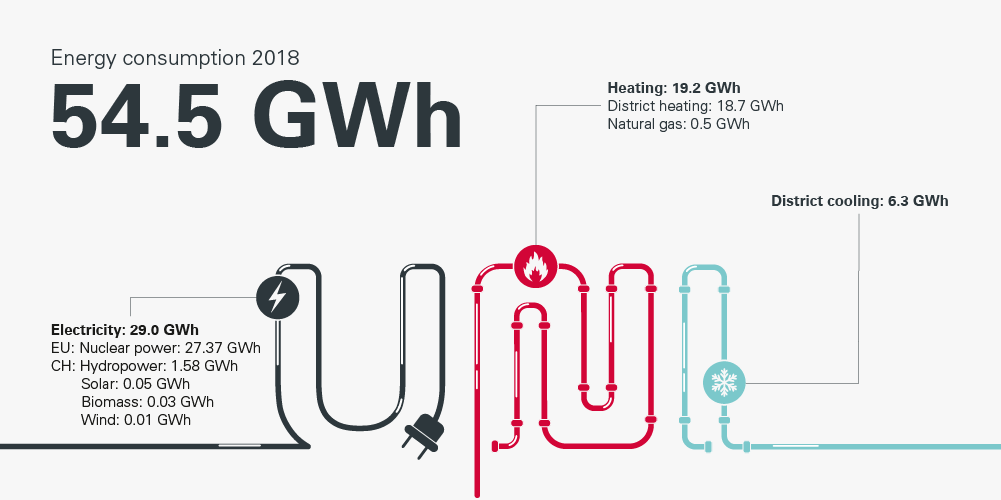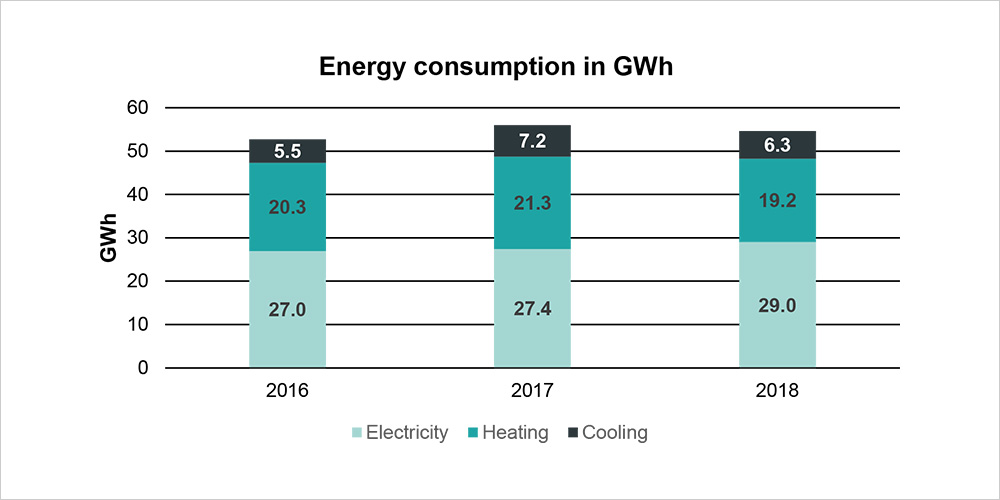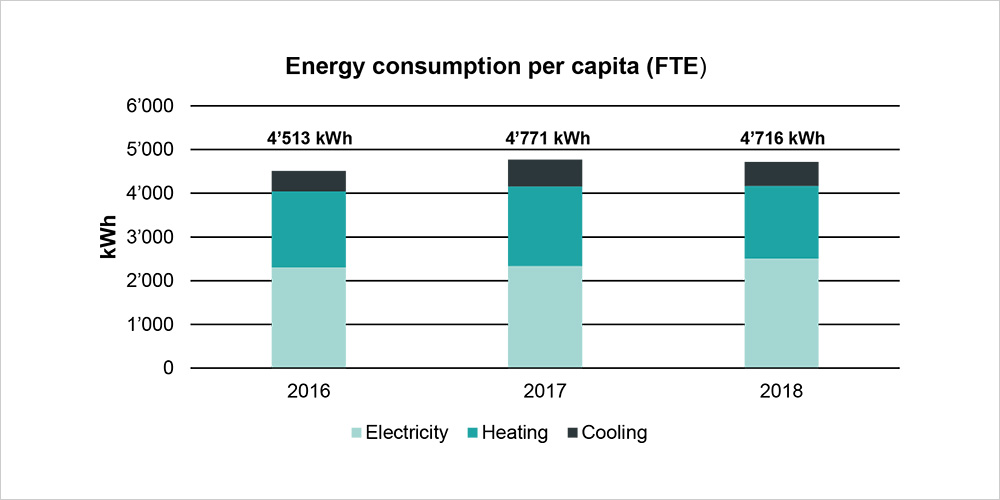Energy

Last year, the University of Basel used 54.5 gigawatt hours (GWh) of energy[1], which is roughly equivalent to the consumption of approximately 3,100 Swiss households[2]. Electricity accounted for over half of the energy consumption, totaling 29 gigawatt hours.
The main forms of energy used at the University of Basel include electricity, district heating and district cooling. All electricity is sourced externally, because the university does not yet have any of its own production systems, such as solar panels. Last year’s electricity mix was 94.2% foreign nuclear power, 5.5% domestic hydropower and 0.3% remaining domestic renewable energy sources: solar, wind and biomass. In January 2020, foreign nuclear power was replaced by European hydropower, which since then accounts for the main share of the electricity mix at the University of Basel, with approximately 95%.
18.7 GWh of heat from the local district heating network as well as 0.5 GWh of heat from natural gas were also used. In addition, the university hospital used 6.4 GWh of cooling power from the district cooling network.
Despite an increase in power use, total energy consumption dropped by 2.5% over the previous year, which can be attributed to a reduction in district heating use (-10%) and district cooling use (-12.4%). Compared to 2016, however, total consumption increased by 3.6%. Even if the reasons for the increase cannot be shown in detail, the longer opening hours in the central buildings (including libraries and study rooms) as well as the overall increase in IT use have probably contributed to this.
Divided by the number of employees and students, energy consumption in 2018 totaled around 4,700 kWh per capita (full-time equivalent, FTE[3]). Consumption per capita is thus 4.5% higher than in 2016, but 1.2% less than in 2017.
In 2018, a comprehensive energy measuring concept was developed to record consumption figures more precisely in the future and feed them to the energy monitoring system that is currently in development. This will make it possible to close data gaps, analyze consumption more precisely and take more targeted action in the future. At the same time, a feasibility study is being undertaken to assess the photovoltaic potential of the rooftops of university buildings.
Targets and specific measures for reducing energy consumption are currently being developed and will be published here in fall 2019.
Further links and downloads
[1] Buildings belonging to associated institutes, such as the Swiss TPH or the university hospital, were not included, nor was any energy consumption data available for the smallest building units.
[2] In 2017, average energy consumption per Swiss household was approx. 17,600 kWh (statistics from the Federal Statistical Office (2017): «Private household by commune and household size» and the Swiss Federal Office of Energy (2017): «Der Energieverbrauch der Privaten Haushalte 2000 – 2017».
[3] Each student is counted as 0.68 full time equivalent. A total of 11,581 full-time equivalents were counted in 2018.




